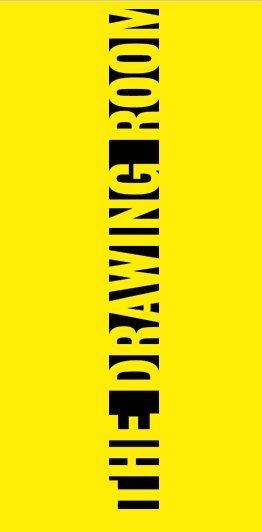The Secret Theory of Drawing
dal 3/10/2006 al 18/11/2006
Segnalato da
David Austen
Trisha Donnelly
Olafur Eliasson
Ceal Floyer
Ellen Gallagher
Dominique Gonzalez-Foerster
Douglas Gordon
Patrick Ireland
Alan Johnston
John Latham
Mark Manders
Matt Mullican
Anri Sala
Bojan Sarcevic
Joelle Tuerlinckx
Cathy Wilkes
Caoimhin Mac Giolla Leith
3/10/2006
The Secret Theory of Drawing
The Drawing Room, London
Dislocation & Indirection in Contemporary Drawing. This exhibition explores the possibilities of drawing using non-traditional or indirect mean. The specific notion of drawing the show is designed to evoke is one of displacement, deferral or obliquity. While there is relatively little drawing per se, the various works included conspire to emphasise the status of line, graph, and pulse. Works by David Austen, Trisha Donnelly, Olafur Eliasson, Ceal Floyer, Ellen Gallagher, Dominique Gonzalez-Foerster...

Dislocation & Indirection in Contemporary Drawing
Artists: David Austen, Trisha Donnelly, Olafur Eliasson, Ceal Floyer, Ellen Gallagher, Dominique Gonzalez-Foerster, Douglas Gordon, Patrick Ireland, Alan Johnston, John Latham, Mark Manders, Matt Mullican, Anri Sala, Bojan Šarcevic, Joelle Tuerlinckx, Cathy Wilkes.
This exhibition explores the possibilities of drawing using non-traditional or indirect means, whilst addressing such traditional art-historical subjects as portraiture, narrative, figuration, the seascape, the still life and the decorative frieze. The specific notion of drawing the exhibition is designed to evoke is one of displacement, deferral or obliquity, as opposed to the more currently popular conception of drawing as gestural, expressive, more or less instantly communicative, and complete in and of itself. While there is relatively little drawing per se in the exhibition, the various works included conspire to emphasise the status of line, graph, and pulse.
The title of this exhibition is derived from a small abstract, black-and-white gouache by David Austen, on which is printed a resonant and suggestive phrase he once misheard in conversation: The Secret Theory of Drawing. Olafur Eliasson's grid of drawings, generated by a handmade drawing machine, registers the pitch and sway of a boat on fishing-trips with his father on the Northern seas. Trisha Donnelly's The Passenger, an obscure homage to Antonioni's eponymous film, is a suite of eleven drawings displayed in a cycle of eleven successive days. Ellen Gallagher's large painting consists of sheets of lined, pinkish penmanship-paper and appears to be awaiting the elaboration of the lexicon of debased signifiers of race for which she is best known. Dominque Gonzalez-Foerster's exotic ideogram is cast in neon isolated against an expansive monochrome ground in contrast to Ceal Floyer's recursive ampersand motif in black vinyl 'drawn' along the length of a white wall. Anri Sala's Untitled (2004) is a series of eight black-and-white photographs of moths lined up in a corner of a room. Bojan Šarcevics wall-bound 'drawings in space' are delicate sculptures made of thread and thin filaments of bronze.
Cathy Wilkes's enigmatic multi-part sculptural tableau juxtaposes sundry found domestic objects with thin lengths of wood positioned in a manner obliquely suggestive of the use of line in drawing. Mark Manders's floor-based work deploys rope as a graphic line conjoining the printed word with figurative sculpture in pencil on ceramic. Joelle Tuerlinckx's shifting array of found grids and drawing-based explorations of the relationship between two- and three-dimensional depiction has a delicate simplicity that belies its rich deposits of associative meaning; whereas John Latham's series of One-Second Drawings from the early 1970s are legendary instances of what he termed 'least events'. Matt Mullican's 'bulletin board' includes drawings from the 1970s relating to 'Glen', an early precursor of his more recent, hypnotically-induced alter ego, 'That Person', to whom hundreds of drawings are attributed. Patrick Ireland's seminal 'Portrait of Marcel Duchamp' (1966), an ensemble of works derived from mechanically produced 'cardiogram drawings', will be the subject of a separate concurrent show at Sleeper Gallery, Edinburgh. Alan Johnston's ghostly black-and-white wall drawing, will gesture obscurely towards Ireland's displaced work. Douglas Gordon's teasing presentation of 'the daily practice of drawing' provides an ambiguous conclusion to the exhibition.
This exhibition is a rare opportunity to see works not previously seen in this country by major international artists, drawn from museums, galleries and private collections in the UK and abroad.
Some Electronic Residues from the Corpus of M.D., an exhibition of works by Patrick Ireland, will be at sleeper gallery, Edinburgh. 2 - 20 October 2006. www.sleeper1.com
Curator's biography
Caoimhi'n Mac Giolla Le'ith is a critic, curator and Senior Lecturer in Modern Irish at University College Dublin. His art criticism has appeared in Afterall, Artforum, Circa, Flash Art, Modern Painters, Parachute and Parkett. His many published works on contemporary visual art include recent essays on Franz Ackermann, Cecily Brown, Ellen Gallagher, Jaki Irvine, Karen Kilimnik and Michael Raedecker. He has curated exhibitions at The Irish Museum of Modern Art, The Douglas Hyde Gallery and Kerlin Gallery, Dublin.
A catalogue will be published in early November to coincide with the exhibition
The Secret Theory of Drawing will tour to The Model Arts Centre & Niland Gallery, Sligo, Ireland. 25 January - 20 October 2007.
For further information and images please contact Lucy Bayley, Administrator or Mary Doyle, Co-Director, The Drawing Room on 020 77295333
Private View 4 October 18.30 - 20.30.
Open Thurs - Sun 12.00 - 18.00.
Admission free
Talk by the curator, Caoimhi'n Mac Giolla Le'ith, Saturday 21 October, 16.00. Admission free, booking essential
The Drawing Room
Tannery Arts
Brunswick Wharf 55 Laburnum Street - London



